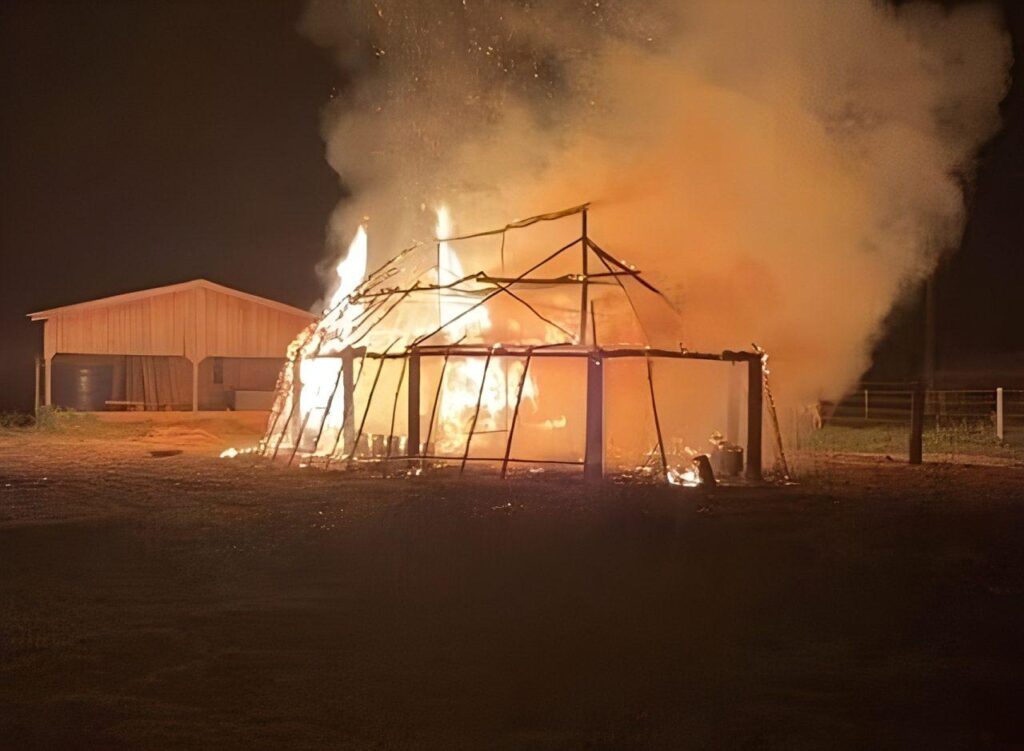
Latest News in the Struggle for Land in Brazil
October 25, 2025
The Comitê de Apoio à Luta pela Terra (CALT) in Rondônia, Brazil, has condemned the recent arson attack on an indigenous peasant school and a house of prayer in the Aperoí dos Puruborá village. The attack, which occurred on October 20, is part of a systematic process of violence and intimidation against the Puruborá people, who have been fighting for their land for decades.
The Puruborá people have been facing violence and threats from big landlords since the 1980s. Recently, a leader of the community was shot and injured, and now the school and the house of prayer have been destroyed. The CALT has called for urgent protection for the Puruborá leaders and families, as well as the immediate demarcation of their land.
The attack is not an isolated incident, but rather part of a larger pattern of violence and impunity in the region. The CALT has demanded that the authorities investigate and punish those responsible for the attack, and that the government take measures to protect the Puruborá peasants and their territory.
The attack highlights the ongoing struggles of indigenous peasants in Brazil, who face violence, displacement, and marginalization. The creation of a National Indigenous Truth Commission has been proposed to investigate the violence against indigenous peoples. The commission would have the power to investigate assassinations, forced removals, among others.
Protesting peasants set fire to a bridge
Peasants in the Maranatã Revolutionary Area set fire to a dilapidated wooden bridge on October 8th, demanding action from the local government. The bridge had been in poor condition for months, posing a risk to peasants and schoolchildren. The community had complained to the government with no response, leading them to take matters into their own hands. The goal was to pressure the government to build a new bridge.
The incident highlights the frustration of peasants with government neglection. A similar protest took place on October 6th, when peasants blocked the road to demand school buses for children.
In 2006 the peasants and workers built a bridge through voluntary labor, defying exploitation. This achievement marks a turning point, showcasing their power and determination to create change despite the neglect of the State, and demonstrating a new model of development for the people.
